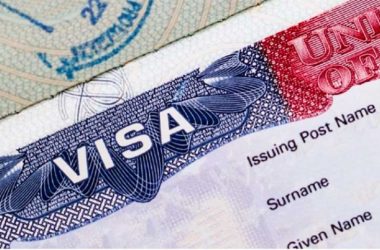
Venezuela is well underway to recovery after the brief July 28, 2024 election fever and it’s the best time for its friends and beneficiaries of its solidarity in the Caribbean Community (CARICOM) and the Wider Caribbean region to start a deeper process of more direct engagement with Guyana and Venezuela over the latter’s claim to the Essequibo region, which recently turned Guyana into both the envy and ivy of international energy stakeholders, near and far.
Today, regional envy revolves around the announcement during his address to the opening of Guyana’s Parliament (National Assembly) on Thursday (October 10) that his administration will be making a $200,000 one-time contribution to every household in Guyana.
This is obviously just the beginning of such direct payments from the wealth yielded by Essequibo to Guyana in recent times.
Revival of the 125-year-old claim by Venezuela has led to another round of seemingly endless stop-and-go mediation talks at the United Nations (UN) through the International Court of Justice (ICJ), a process that has proven more elastic over the past six decades than capable of offering mutually-acceptable and binding solutions.
Until the discovery of oil and gas in Essequibo and the entry of the giant US-based Exxon corporation and Venezuela’s revival of its rejection of an 1899 Arbitral Award, the matter was treated more as a tolerable irritant, a neighbourly quarrel that didn’t hinder or affect neighbourly ties.
Historically, each side secured their borders within limited limits, but bellicose language and unprecedented actions by both sides led to international media predictions of a war that neither side has declared, but which some international media houses seem anxious to cover – a deadly war between two oil-and-gas-rich nations sharing the world’s largest proven and extractive energy deposits.
The prospects of war between the two Caribbean neighbours have seen both take unprecedented security actions, including Venezuela’s incorporation of the Essequibo region into a new version of its territorial map, mobilization of additional troops and military equipment near borders and beefing up of preparedness for any extraordinary eventuality.
Guyana has always had CARICOM’s support in what used to be described as a ‘territorial dispute’, but which adjective Guyana firmly rejects today, insisting there’s ‘no dispute’ about its ownership of two-thirds of its territory, including precious land and marine resources.
Fortunately, CARICOM member-states have not overly associated with the continuing efforts at the Washington-based Organization of American States (OAS) to undermine Venezuela and have wisely remained among Venezuela’s reliable neighbours.
However, Caribbean leaders in nations that benefitted from Venezuela’s generous PetroCaribe Agreement and the positive Free Trade components that expanded beyond energy shouldn’t wait until the next loud bell tolls to start initiating new approaches to this latest version of yet another sad old Caribbean movie.
Venezuela and Cuba have mutually dependable bilateral and multilateral ties with CARICOM and all 14 member-states that have seen Caracas and Havana, unilaterally and together, provide reliable support in areas ranging from Education and Health to Emergency (post-hurricane) support, Sports and Culture, Tourism and Air Transport, among others.
Most CARICOM member-states are also indebted to Venezuela for PetroCaribe oil and gas and non-energy trade agreements in operation before the plan was scuttled by US sanctions against Venezuela.
Most (if not all) also benefitted greatly from the international ‘Operacion Milagro’ (Operation Miracle) eye care mission that helped millions regain sight and still continues in Caribbean member-states with bilateral ties with Cuba and Venezuela.
The ALBA-TCP arrangement also led to the creation of the ALBA bank and regional multifunctional network, as well as the Community of Latin American and Caribbean States (CELAC), where CARICOM member-states coexist with Cuba, Venezuela and other Latin American states.
The Organization of Eastern Caribbean States (OECS) has also proven to be a reliable partner of both Cuba and Venezuela in regional diplomacy, combining their numbers and votes at UN, CELAC and Organization of American States (OAS) meetings to achieve mutually desirable results for the Caribbean.
Guyana has responded to Venezuela’s claim by seeking assistance from allies to boost its defence capabilities, much to the chagrin of Venezuela, whose armed forces far outstrip its neighbour’s.
The pre-election referendum on Essequibo implemented by Venezuela last December stepped up and expanded Guyana’s bids seeking new and more help from traditional and non-traditional partners, but CARICOM needs to deepen its engagement with both sides, especially now that the elections are over – and Guyana’s is on the cards for 2025 officially.
Venezuela has been able, once again, to count on the majority of its Caribbean allies to not easily swallow the Western line of crucifying Caracas and millions of Venezuelans, in their unsuccessful bids to remove Maduro.
Guyana, while CARICOM Chair under President Dr Irfaan Ali, joined Brazil and Mexico in requesting post-election audits, but stopped very short of joining the overt criticism of Maduro or Venezuela.
The CARICOM family is nonetheless still very united behind both Guyana and Venezuela on regional and international issues that together affect the region, from Climate Change to calls for nuclear powers to respect the region as a Zone of Peace.
The community’s family comradery needs to be urgently and incremental upgraded, widened and deepened to bring Guyana and Venezuela closer to talking rather than quarrelling, by establishing joint commissions and other mechanisms to ensure permanent exchanges on Essequibo and other troublesome bilateral cross-border issues — ranging from drugs trafficking to illegal mining to people smuggling and regularizing the status of illegal citizens in each territory.
Such commissions can also deliberate and propose on expanding trade and other economic and friendly cooperation between CARICOM member-states and Venezuela and Guyana, including further energy cooperation and revival of the PetroCaribe free trade mechanism.
The depth of the historical links between Venezuela and the Caribbean go a long way back to the 18th Century when Saint Lucian navigator and shipwright Jean Baptiste Bideau built ships that transported goods and supporters of Simon Bolivar and his determined fight for Venezuela’s independence from neighbouring Trinidad & Tobago and other British, French and Dutch-controlled ‘West Indian’ and ‘Antillean’ islands.
Bideau became Bolivar’s personal captain and saved the Liberator’s life in a friendship that saw Bideau serve as a Governor of Eastern Venezuela before his death in battle defending Venezuela’s independence in 1817 at the ‘Casa Fuerte’ in the city of Barcelona.
A proposal to relocate Bideau’s body to a national heroes’ cemetery on the 200th anniversary of his death in 2017 hasn’t yet found favour in Caracas, but CARICOM and the OECS may want to cooperate on encouraging identification of mutual projects (like this) to cement the historical symbolism of Venezuela-Caribbean ties.
A Bideau Park has long existed in Castries, featuring busts of Bolivar and Bideau and supporters of Venezuela-Saint Lucia ties have long been promoting establishment of a historical monument and a related interpretation center in the community of Desruisseaux in Micoud, where the foundation of the home Bideau lived in still exists, but in an abandoned state.
The possibilities are numerous and the issues are plenty, so the quicker the Caribbean’s leaders get active on the Guyana-Venezuela front, the better for one and all.













